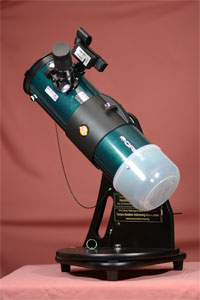Join Tucson Amateur Astronomy Association and Oracle State Park for an evening of dark-sky Stargazing. There will be other events happening as well. Check the Oracle State Park website for additional details.
Spacefest STEAM
Join Tucson Amateur Astronomy Association for some Solar Observing in support of the annual Spacefest Science, Technology, Engineering, Arts, and Math (STEAM) event at JW Marriott starr Pass. The event will go from 9 am to 4 pm but solar observing will only be in the morning. Weather dependent.
Spacefest STEAM
Join Tucson Amateur Astronomy Association for some Solar Observing in support of the annual Spacefest Science, Technology, Engineering, Arts, and Math (STEAM) event at JW Marriott starr Pass. The event will go from 9 am to 4 pm but solar observing will only be in the morning. Weather dependent.
Moon Viewing at Flandrau Planetarium
An evening of Moon observing on the UA Mall just south of Flandrau Planetarium for the 50th Anniversary of the Apollo Moon Landing. Timing will be in the evening but has not yet been finalized.
Elfrida Library Solar Observing
A morning of observing the Sun at the Elfrida Library in Elfrida, AZ (SE of Tucson in Cochise County). Event will include both Elfrida and Tombstone Libraries.
Elfrida, AZ Library Evening Stargazing
An evening of Stargazing at the Elfrida Library in Elfrida, AZ (SE of Tucson in Cochise County). Event will include both Elfrida and Tombstone Libraries.
Oro Valley Public Library Star Party and Telescope Dedication
A Dedication Ceremony and Public Star Party supporting Oro Valley Public Library. The Tucson Amateur Astronomy Association will donate a small telescope for the Library to check out to patrons. We will have a short dedication ceremony at 4:30 followed by some daytime Moon Viewing through the new Library Telescope. Come check out the event then check out the telescope!!
Planets of the Month: April 2019
by Erich Karkoschka
Astronomy Fundamentals Meeting – May 2019
Constellation of the Month:
Dorado and Mensa
Presenter: Doug Smith
Doug Smith will start the night with a talk about the southern constellations Dorado and Mensa..
Main Presentation:
The Caldwell Catalog
Presenter: Gus Gomez
For our main topic, Gus Gomez will be discussing The Caldwell Catalog.
General Meeting – May 2019
Open to the Public: TAAA encourages the public to join our general meetings held on the first Friday of each month.
Meeting Location: room 308 at Lunar and Planetary Labs Kuiper Space Sciences Bldg (1629 E. University Blvd.) on the University of Arizona campus. See Map
NOTE THE DIFFERENT LOCATION DETAILS AND MAP ABOVE.
6:30 pm – Introductory Presentation
Title: ELECTIONS and Cassiopeia Observatory
Speaker: Michael Weasner
This will be a membership meeting starting with an observatory presentation at 6:30 P.M. by Michael Weasner about the Cassiopeia Observatory* that he built and runs. Following it will be an internal business and elections meeting.
*There is an Open House at Cassiopeia Observatory for TAAA-members-only on Saturday, May 4th, at 10 A.M. Details at meeting.
7:30 pm – Main Presentation
Title: Highlights of the OSIRIS REx Mission
Speaker: Dolores Hill, Senior Research Specialist at Lunar & Planetary Laboratory
Dolores Hill, Senior Research Specialist at Lunar & Planetary Laboratory will present highlights of the OSIRIS REx spacecraft’s arrival at near-Earth asteroid Bennu, including some exciting discoveries.







